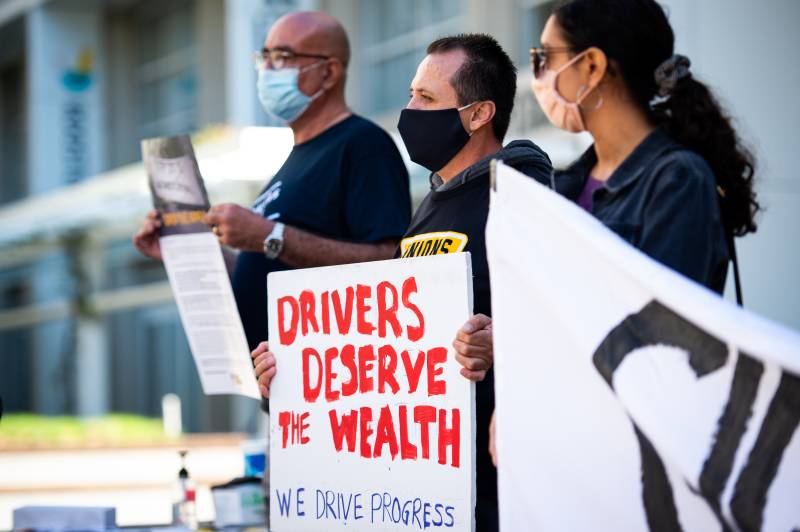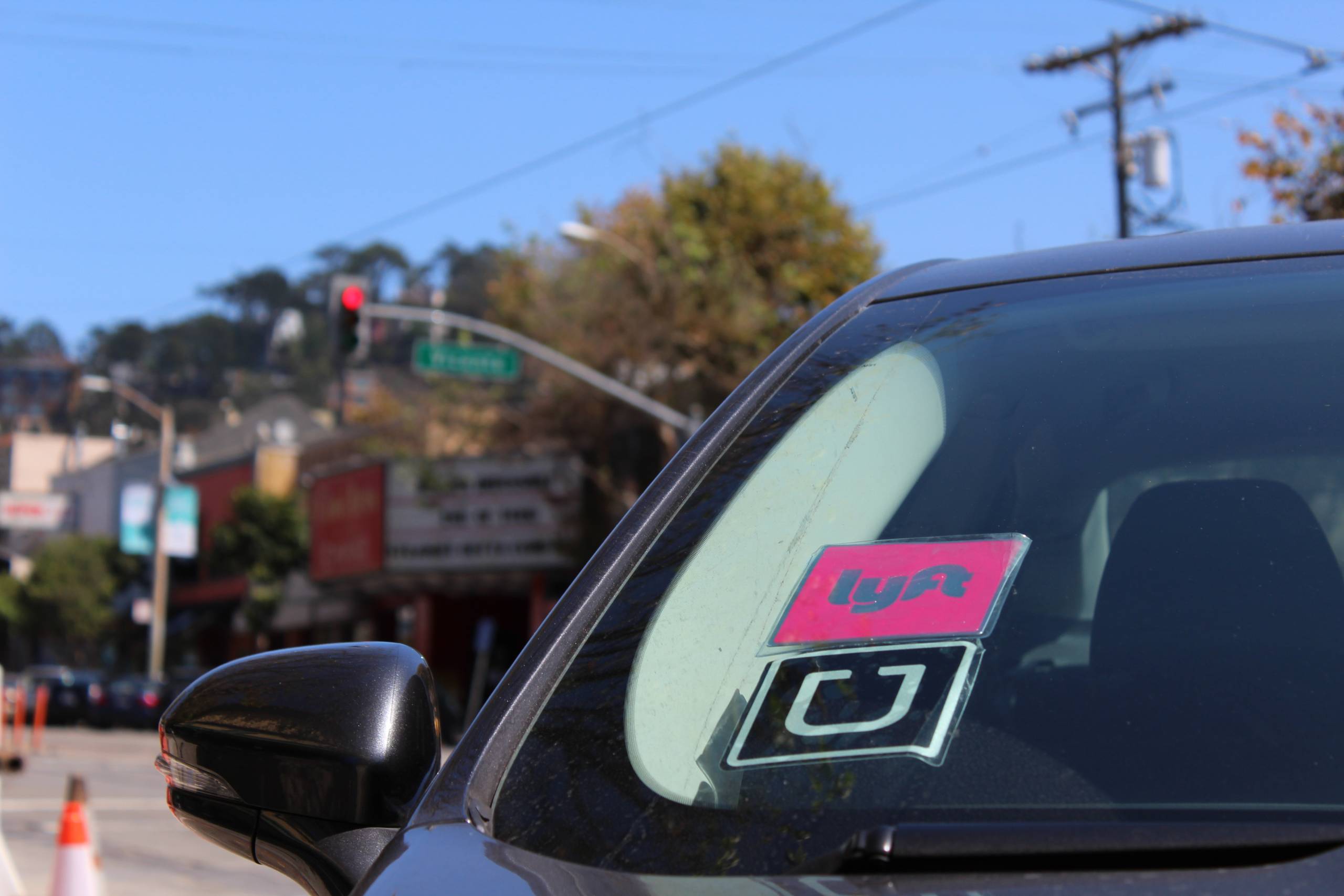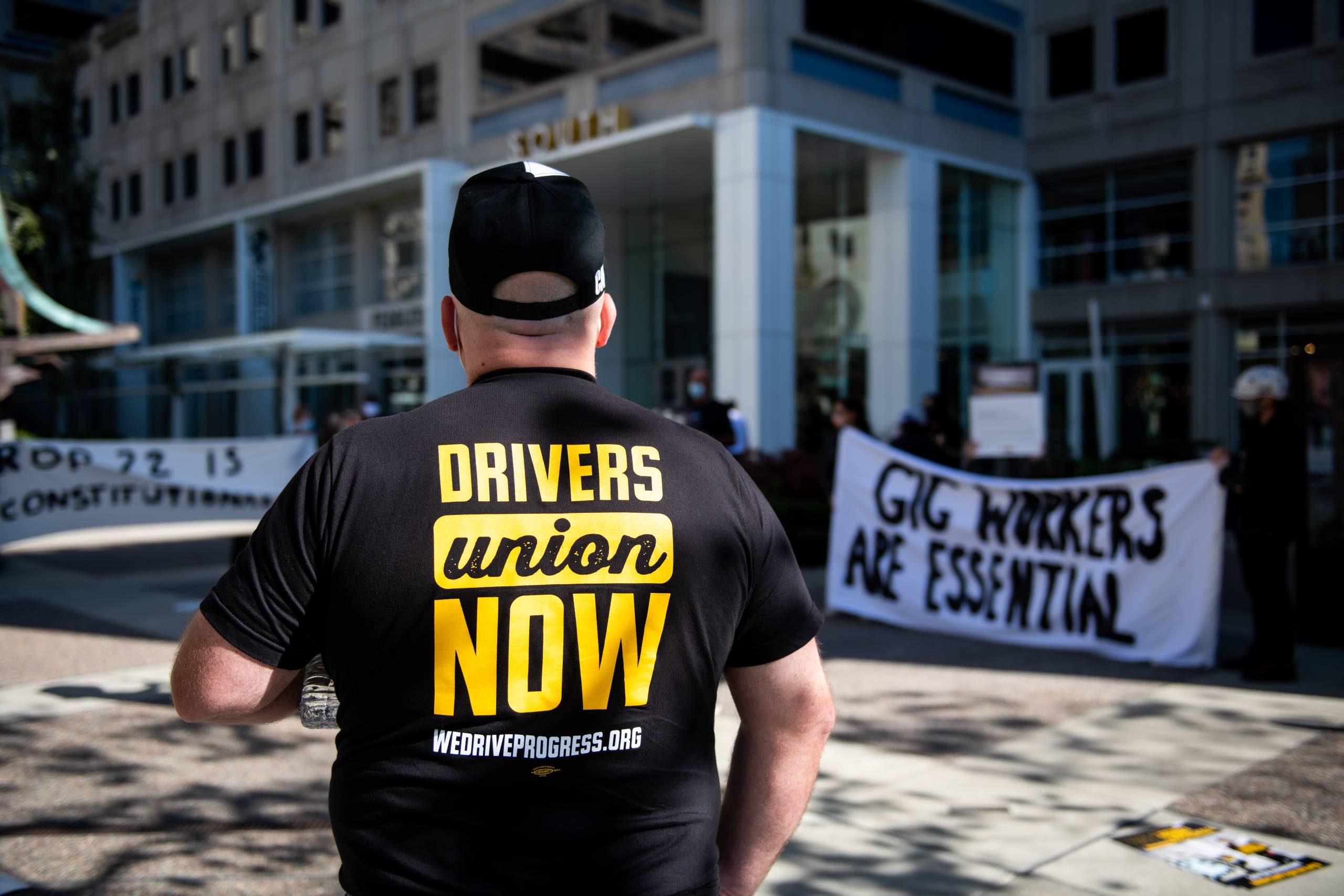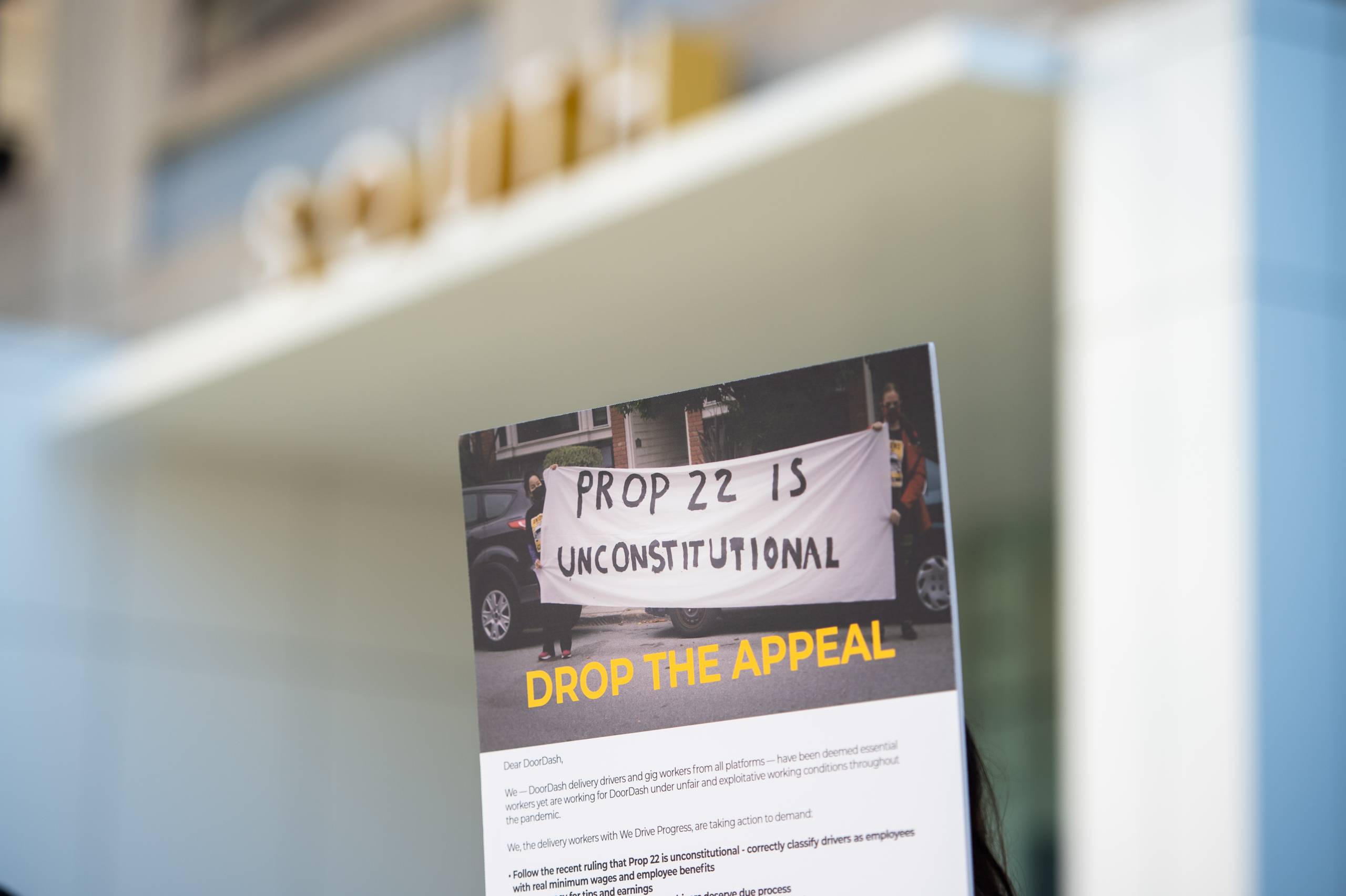After a California appeals court upheld most of Proposition 22 last week, it’s widely expected the Service Employees International Union (SEIU) will appeal to the state Supreme Court. That’s even though the union says it’s still considering its options.
'No Reward for Loyalty': Gig Companies Winning Fight to Classify Drivers as Independent

Tia Orr, executive director of SEIU California, wrote in an email to KQED, “Drivers have always led this movement, and we will follow their lead as we consider all options — whether that’s seeking review from the California Supreme Court — to ensure that rideshare drivers and delivery workers have access to the same rights and protections afforded to other workers in California.”
Prop. 22 (PDF) is widely perceived as a major carve-out of California labor law, allowing Uber, Lyft and similar businesses to classify their drivers as independent contractors, rather than employees. A lower court ruling found the law unconstitutional. But the two-judge majority on the state appeals panel disagreed (PDF), arguing state law has never provided generous labor protections to “all potentially eligible wage workers” in California. There are, for instance, long-standing carve-outs for domestic and agricultural workers.
Rideshare industry reaction exultant
In a statement following the release of the decision, Lyft officials wrote in a blog post, “We are pleased that the court upheld the democratic will of the voters … We are excited to continue operating our service with no changes.”

Uber’s chief legal officer, Tony West, wrote in an email to KQED, “Across the state, drivers and couriers have said they are happy with Prop 22, which affords them new benefits while preserving the unique flexibility of app-based work.”
The 1st District Court of Appeal in San Francisco did invalidate Prop. 22’s most controversial provision, one that required a close-to-impossible seven-eighths’ vote of the Legislature to pass any bills that modify Prop. 22. But experts don’t expect Uber or Lyft to appeal, lest they risk the possibility the California Supreme Court agrees with the lower court ruling, and/or strike down all of Prop. 22.
Stanford labor law professor William Gould, who served as chair of the National Labor Relations Board from 1994 to 1998, wrote in an email to KQED that he thinks it’s “more than likely that the California Supreme Court will reverse. Should it not do so, the Biden administration’s new wage and hour rule on who is an employee preempts state law and, if drawn inconsistently with Proposition 22, will trump it constitutionally.”
In a separate but related decision, a unanimous 9th Circuit panel reinstated Uber and Postmates’ constitutional claim against California’s Assembly Bill 5 on Friday. The San Francisco-based appeals panel said the state must face claims that the law is unconstitutional because it singles out app-based transportation businesses while exempting many other industries from the need to justify why they classify some workers as contractors rather than employees.
Already, the success of Prop. 22 with California voters at the ballot box in 2020 has inspired a similar measure on the 2024 ballot, one that would overturn a new law (PDF) designed to improve wages and working conditions in fast food.
“No question there are a lot of minimum labor law standards in California, and I understand why employers find them onerous to comply with, not to mention expensive,” said UC Berkeley law professor Catherine Fisk, who wrote a friend-of-the-court brief on behalf of a group of California labor and employment law professors opposed to Prop. 22. She added that she’s “disappointed” by the appeals court decision.
“I don’t think it’s really in the public’s best interest to have such a large group of workers who are carved out of the minimum protections of state law. That exists not only to benefit the workers and their families, but the communities that are affected by abject poverty,” she said.
Happy to be independent, unhappy about the pay
“Scott from LA County,” who drives for Uber, says he didn’t even vote in 2020 when the measure was on the ballot. KQED is not sharing Scott’s last name because because he fears the company might retaliate against him for speaking to KQED; he is unaffiliated with either the SEIU or the industry-backed Protect App-Based Drivers and Services coalition (PADS).
“I was a little nonchalant about Prop. 22 because I was just getting started, and things were surprisingly good back then,” he said.
Scott admitted his opinion changed after Prop. 22 took effect the following January, and he watched the measure’s promised 120% of minimum wage become a ceiling for him, rather than a floor. In other words, he makes about $18.60 an hour these days.

“But that’s not what independent contractors got into Uber for, to make 120% of minimum wage,” he said. “In the past, I was making $30, $40, $50 an hour.”
That said, Scott still loves choosing his own hours, 20 to 25 a week, and he’s not really bothered by the fact that independent contractors, as defined by Prop. 22, don’t have the same protections as employees under California law.
He said what bothers him most, aside from making less money, is his sense that the company is driving out gig workers like him — who remember the days before Prop. 22 and can see the work is becoming less profitable — and relying on high turnover to pull in new people who can’t remember when drivers made more.
“There’s no reward for loyalty. You just kind of always feel like you’re replaceable,” Scott said.
Side hustle or livelihood?
The percentage of rideshare drivers who are full time versus part time has been a point of contention between union-friendly Democratic lawmakers in California and the rideshare companies. A report published last year by UC Riverside’s Center for Economic Forecasting and Development for the industry-backed drivers’ coalition found “only 23% of drivers report working with platforms on what would conventionally be considered a full-time basis.”

In a recent talk before The Economic Club of Chicago, Uber CEO Dara Khosrowshahi said the weakening economy is bringing more drivers — he calls them “earners” — online.
“About 70% of our earners are saying inflation is actually one of the reasons why they’re coming on to the platform, because they can earn flexibly. And they can, you know, earn another $500 a week for groceries or whatever else they need to live,” Khosrowshahi said.
If drivers are only making a little extra money with the platforms versus relying on the driving for their livelihoods, labor lawyers say, it’s easier for gig companies to argue they aren’t exploiting the drivers by refusing to provide them the benefits employees would receive — or exploiting taxpayers by socializing the costs drivers can’t afford to cover on their own.
“We saw this during the pandemic, right after Proposition 22 was enacted,” said Fisk, of UC Berkeley. “Every other employer had paid into the unemployment system. So when their workers became unemployed, they could file a claim for unemployment and be compensated. Uber and Lyft exempted themselves from the unemployment system. Their drivers were left penniless. So what did the companies say? ‘Congress has created a system for independent contractors. You should apply to that.’ Who was paying for that? The taxpayers.”
